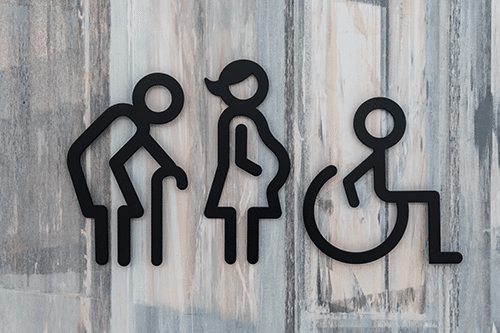Also read:

What is Sexual Orientation Discrimination?
Sexual orientation discrimination occurs when an employee is treated differently or unfavorably because of their real or perceived sexual orientation, whether they identify as heterosexual, homosexual, bisexual, or otherwise. This type of discrimination can manifest in various aspects of employment, including hiring, firing, promotions, job assignments, salary determination, benefits, training opportunities, and other terms or conditions of employment.

Legal Protections Against Sexual Orientation Discrimination
In Oregon, employees are protected against sexual orientation discrimination by both state and federal laws. The Oregon Equality Act of 2007 explicitly prohibits discrimination based on sexual orientation, which includes perceived orientation, in the workplace, housing, and public accommodations. At the federal level, the U.S. Supreme Court’s landmark decision in Bostock v. Clayton County in 2020 affirmed that Title VII of the Civil Rights Act of 1964 protects employees from discrimination based on sexual orientation and gender identity.

Qualifying for a Legal Employment Law Case
For a situation to qualify as a legal case under employment law regarding sexual orientation discrimination, the following criteria typically need to be met:
- Employment Relationship: The individual must be an employee of the company or applying to work for the company at the time the discrimination occurred.
- Protected Class: The individual must belong to a protected class, in this case, based on sexual orientation.
- Adverse Action: The individual must have experienced an adverse employment action, such as being fired, demoted, denied a promotion, or subjected to other forms of discrimination or harassment.
- Connection to Protected Class: There must be evidence to suggest that the adverse action was taken because of the individual’s sexual orientation.

Submitting a Claim in Oregon
If you believe you have been the victim of discrimination in the workplace, here are the steps to submit a claim in Oregon:
- Documentation: Begin by documenting all instances of discrimination, including dates, times, witnesses, and a detailed account of what occurred.
- Internal Complaint: If possible, report the discrimination to your employer through the appropriate channels, such as human resources. This step is important because it gives the employer a chance to address the issue.
- File a Complaint with BOLI: You can file a complaint with the Oregon Bureau of Labor and Industries (BOLI), which enforces the state’s anti-discrimination laws. There is a time limit for filing a complaint, typically one year from the date of the last discriminatory act.
- File a Complaint with the EEOC: Alternatively, or in addition, you can file a charge of discrimination with the U.S. Equal Employment Opportunity Commission (EEOC), which enforces federal anti-discrimination laws.
How Meyer Employment Law Can Assist
Navigating the complexities of employment law and discrimination cases can be challenging without expert guidance. At Meyer Employment Law, we are committed to providing our clients with the support and representation they need to address discrimination effectively. From evaluating your case and advising on the best course of action to representing you in negotiations or legal proceedings, our team is here to ensure your rights are protected and that you receive the justice you deserve.
If you’re facing discrimination based on your sexual orientation in the workplace, don’t hesitate to reach out to us. Together, we can work towards creating a more inclusive and fair workplace for everyone in Oregon.
Discrimination Law
Read more about Oregon discrimination law.




